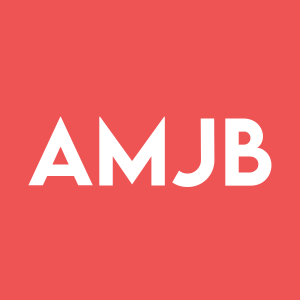[424B2] JPMORGAN CHASE & CO Prospectus Supplement
Rhea-AI Filing Summary
JPMorgan Chase Financial Company LLC, fully guaranteed by JPMorgan Chase & Co., is offering auto callable contingent interest notes linked to the least performing of Chipotle Mexican Grill, Costco Wholesale and Oracle common stocks, maturing on November 29, 2028. The notes pay a monthly contingent interest rate of at least 15.20% per annum (at least $12.6667 per $1,000 note each month) only if on a review date each stock closes at or above 60% of its initial value.
The notes may be automatically called as early as May 26, 2026 if, on certain review dates, each stock closes at or above its initial value, in which case investors receive $1,000 per note plus due and unpaid contingent interest. If the notes are not called and any stock finishes below 50% of its initial value at maturity, repayment of principal is reduced one-for-one with the decline of the worst stock, and investors can lose most or all of their principal. The estimated value is approximately $938.40 per $1,000 note and will not be less than $900.00, and the notes are unsecured, not listed, and subject to the credit risk of both issuers.
Positive
- None.
Negative
- None.
FAQ
What is JPMorgan Chase Financial (AMJB) offering in this 424B2 filing?
The company is offering Auto Callable Contingent Interest Notes linked to the least performing of the common stock of Chipotle Mexican Grill (CMG), Costco Wholesale (COST) and Oracle (ORCL), fully and unconditionally guaranteed by JPMorgan Chase & Co. and scheduled to mature on November 29, 2028.
How do the contingent interest payments on the AMJB notes work?
For each $1,000 principal amount note, investors may receive a Contingent Interest Payment of at least $12.6667 per month, equivalent to a contingent interest rate of at least 15.20% per annum, but only on review dates when the closing price of one share of each reference stock is at or above its Interest Barrier of 60.00% of its initial value. Missed payments can be made later if a future review date meets the barrier.
When can the AMJB auto callable notes be automatically called, and what do investors receive?
The notes can be automatically called on any review date other than the first five and the final one, starting as early as May 26, 2026, if each reference stock closes at or above its Initial Value. If called, investors receive, per $1,000 note, $1,000 plus the applicable contingent interest payment and any previously unpaid contingent interest, and no further payments are made.
What happens at maturity for the AMJB notes if they are not automatically called?
If the notes are not called and the Final Value of each reference stock is at least its Trigger Value (50.00% of its initial value), investors receive $1,000 per note plus any due contingent interest and unpaid prior contingent interest. If the final value of any reference stock is below its trigger value, the maturity payment per $1,000 note equals $1,000 plus $1,000 times the Least Performing Stock Return, so investors lose more than 50% of principal and could lose the entire principal amount.
What is the estimated value of the AMJB notes compared with the price to the public?
If priced on the date described in the document, the estimated value would be approximately $938.40 per $1,000 principal amount note, and it is stated that the final estimated value will not be less than $900.00 per $1,000 note. The difference from the price to the public reflects selling commissions, projected hedging profits or losses, and hedging costs included in the issue price.
What are the main risks of investing in the AMJB auto callable contingent interest notes?
Key risks include the possibility of losing more than 50% or all of principal if the least performing stock finishes below its trigger value, and the risk that no contingent interest is paid if any stock closes below its interest barrier on each review date. The notes are unsecured and unsubordinated, subject to the credit risk of JPMorgan Chase Financial and JPMorgan Chase & Co., are not listed on any exchange, may have limited or no liquidity, and offer no dividends or stockholder rights in the reference stocks.
How are the AMJB notes expected to be treated for U.S. federal income tax purposes?
The issuer intends to treat the notes as prepaid forward contracts with associated contingent coupons for U.S. federal income tax purposes, with Contingent Interest Payments taxed as ordinary income for U.S. holders, based on advice from special tax counsel. The document notes that the IRS could adopt a different treatment and that future guidance, including on Section 871(m) for non-U.S. holders, could materially affect tax consequences.







